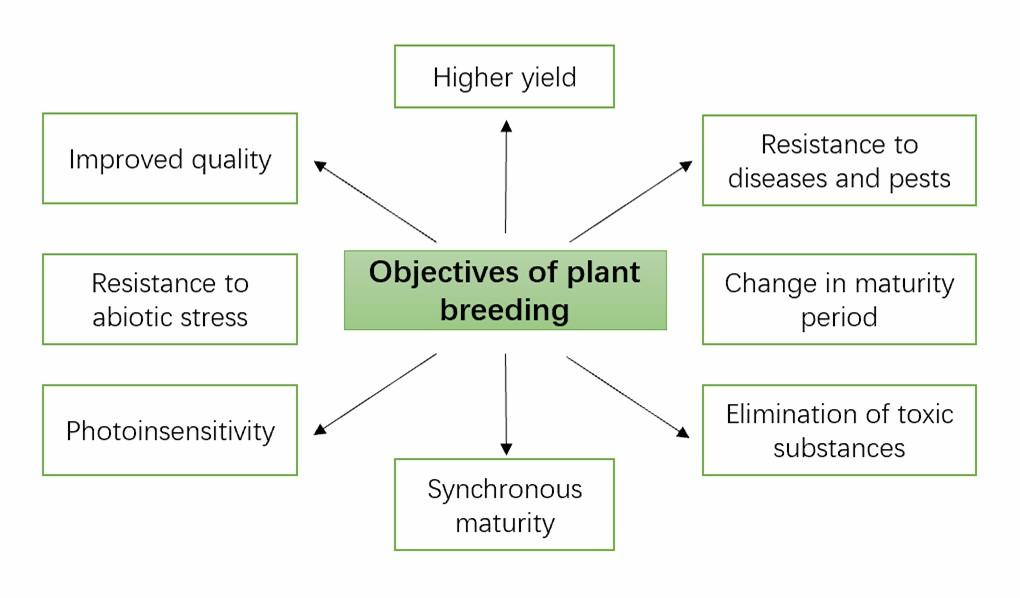Plant nematodes cause serious economic losses and affect the quality of crop products. Plant resistance to nematodes is one of several essential components in nematode management required for efficient crop production. The development and utilization of nematode-resistant cultivars result in reduced yield losses, increased grower profits, and lower costs for food and fiber for consumers. Plant breeders and nematologists have jointly developed productive, nematode-resistant cultivars in many major crops. These cultivars are available throughout the world to assist in the management of many plant nematode species.
Lifeasible, as a leading global company, is committed to helping our customers achieve effective and successful research. We provide breeding of plant nematode-resistant varieties, including conventional breeding and genetic engineering modification. We always deliver reliable results and reports on time to our customers worldwide.
 Fig.1 Objectives of plant breeding.
Fig.1 Objectives of plant breeding.
Lifeasible is always devoted to providing high-quality and satisfactory service to our customers. We provide our clients with direct access to our experts and promptly respond to their inquiries. If you are interested in our services or have any questions, please feel free to contact us or make an online inquiry.
Lifeasible has established a one-stop service platform for plants. In addition to obtaining customized solutions for plant genetic engineering, customers can also conduct follow-up analysis and research on plants through our analysis platform. The analytical services we provide include but are not limited to the following:
Get Latest Lifeasible News and Updates Directly to Your Inbox
Adaptive Evolutionary Mechanism of Plants
February 28, 2025
Unraveling Cotton Development: Insights from Multi-Omics Studies
February 27, 2025